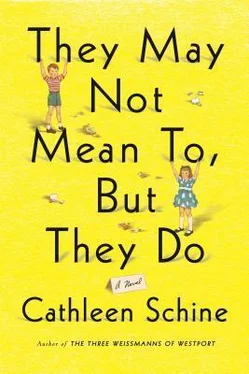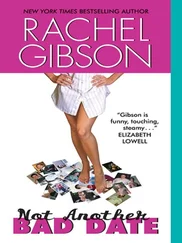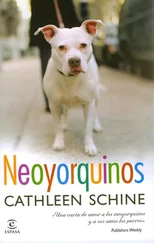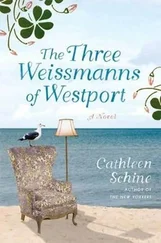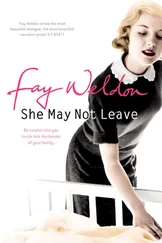She spent some time searching for her striped bag, then searched through it for her sunglasses. Maybe they were in the green bag. The dog followed her wherever she went. She wondered if he would follow her outside, if it was the leash that made him refuse to go on a walk.
“That way you could get a little exercise, fatso,” she said. He really was getting tubby, and so quickly, too. Molly said it was not healthy for him to be so heavy, that Joy should stop feeding him bits of her own food. “We’ll show her,” Joy said. “You deserve every bit of food you can get after the life you lived, whatever it was.” She imagined him on the street, fighting with the crows for pizza crusts.
She put on her sunglasses, got her cane, opened the door, and called Gatto. He made some inquiring noises, then slunk to the door on his belly. Joy went out and down the steps to the street. She called him again. “Come here, come here, Gatto. Cardiovascular activity! Come on!” He looked at her dubiously, then darted out the door and stood beside her. “Good boy.” Now she walked down the street, stopping periodically so he could catch up. He lay down on her feet after each of these sprints, but they made it all the way down the block before Joy turned around to go back.
And then, from nowhere, a giant of a dog galloped around the corner, gave a deep thunderous growl, a deeper more thunderous bark, and Gatto was hanging from the beast’s jaws like a rag toy.
Probably she hit the dog with her cane. That would account for the owner pushing her out of the way and screaming. Unless the screaming was Joy’s, which it may well have been. She grabbed the animal’s jaws and tried to pry them apart, that she was sure of. She was sure she ultimately shoved her cane in its mouth and yanked down until Gatto flopped out onto the ground and the beast’s owner dragged it away by its collar.
Joy carried Gatto into the house. He was alive. His heart was beating, fluttering like hummingbird wings. There was blood on his belly. Joy wrapped him in a towel and put him in the basket of the tricycle. She pushed open the back gate and pedaled as furiously as an eighty-six-year-old can pedal a tricycle. There was a main thoroughfare one block away, a street with stores and malls and an animal hospital. She pedaled and pedaled and crossed the street against the light and heard cars honking and screamed an obscenity and pedaled some more until she saw the vet’s office and pulled the tricycle onto the sidewalk.
Gatto was stitched up and given some shots. The vet was a young woman with freckles sprinkled across her nose who treated him like a VIP, Joy thought. A VIP, she said to Gatto as she pedaled him home. That’s what you are, a VIP.
When Molly came home, she found her mother in bed, Gatto beside her, shaved and stitched, both of them fast asleep. The gate to the alley had been left open, and when she went to close it, she noticed the tricycle, in its basket a bloody towel.
“This is a dangerous city,” Joy said when she woke up. “I’m taking Gatto home where it’s safe.”
The sadness was there, waiting for her in the apartment. I’m sorry, Joy said to the sadness. I’m sorry I had to leave you behind for so long. But, believe me, the blue skies never fooled me, you were in my thoughts, in my heart, every minute. She looked out the window at the rain and the wet trees and the bleary spots of red taillights and white headlights. I’m home, she said, with relief, to the emptiness.
She sat at the kitchen table and Gatto leaped onto her lap, his nails scratching her leg. He was a good traveler. He hadn’t made a peep, zipped up in his bag beneath the seat. She had forgotten he was there, had almost left him behind, abandoned a dog that had already been abandoned, it would have been terrible, and she wondered who would have found him, a flight attendant or one of the cleaning crew, perhaps, and whether they would have taken him home and given him a good life.
“But I didn’t abandon you,” she said aloud. She petted his hard little head and wondered why she felt abandoned. No one had left her behind under an airline seat, it was she who had insisted on leaving California and Molly, but it had taken only a moment for the abandonment to rise up, like a cold flame; it had taken only the sight of Molly turning her back after she got her settled in her JetBlue wheelchair.
Joy pulled the dog up to her face, letting his warmth muffle the silence. “But we didn’t belong there, did we?”
Gatto jumped down and lifted his leg against the leg of the table.
Joy watched him blandly. “You think you can scare me with a little pee? Think again, dog. I’ve been worked over by an expert. With a colostomy bag.”
She wiped up the dog pee. She mourned her husband. She mourned her life, which seemed so far away, lost in time. She longed for her daughter and her son, the sounds of their voices, the strength of their arms, and the loving condescension of their hearts. She longed for Aaron.
She didn’t seem to belong anywhere anymore. But it was good to be home just the same.
* * *
“Promise you’ll call me every day and tell me how you’re doing,” Molly had said before Joy left.
Joy took her promise to heart. She called every day, eagerly, hesitant to disturb Molly, but not hesitant enough to stop dialing. Sometimes she called twice a day, sometimes more. It was dangerous to call so much, signaling need and helplessness, she knew that. She made sure to sound happy and engaged, made sure to share only what bits of information she believed shed a pleasant light on her and her days. The deliveryman from the coffee shop looked cold, she told Molly, so she gave him one of Aaron’s scarves, he was so grateful.
“Mom, it’s June. How could he be?”
“The point, Molly, is how nice it is to be able to make a gesture like that and have it mean something to someone.”
“Which scarf? I hope not the gray cashmere.”
Joy tried to monitor her voice and conversation, to weed out any petulance and grievance of tone, but it was difficult. No matter how hard she listened to herself and monitored herself, what she heard was an indolent, wide-ranging, rolling report of the minutiae of a disgruntled old woman’s existence: the chronology of meals, of courses within meals, the digestive consequences of meals; the frequency of sleep and sleeplessness, the details of other phone calls, phone calls with people Molly did not even know. She couldn’t change the course of her words, they rushed along like a flooded river. She talked about her grandchildren and their bad colds, but also the grandchildren of friends and neighbors with colds that were even worse. Those grandchildren, the grandchildren of friends and neighbors, had cousins, too, whose troubles and triumphs she found herself confiding to Molly. Her voice droned on and she was mesmerized by it, helpless to stop, unwilling to hang up. Not that long ago she had been lying on Molly and Freddie’s couch watching television, her daughter giving her a foot massage, and Joy had been longing to be alone with her loneliness. Now she experienced every phone call to Molly as essential, something she could not let slip away.
“I take the dog out every day.”
“Yes, you told me, that’s great for you, to get out.”
“I still have to carry him. It’s good he only weighs a few pounds. I’m not as strong as I once was. But yesterday it was so windy the doorman, that nice Ernie who Daddy liked so much, he wouldn’t let me out the door. I called the hardware store, Feldman’s, the one with all the tchotchkes, and they suggested Wee-Wee pads, but I had to call a pet store to get them. My neighbor upstairs, the man who was always such a sourpuss until he got his poodle, well, he gave me a number, left it with the doorman, actually, and I called…”
Читать дальше
